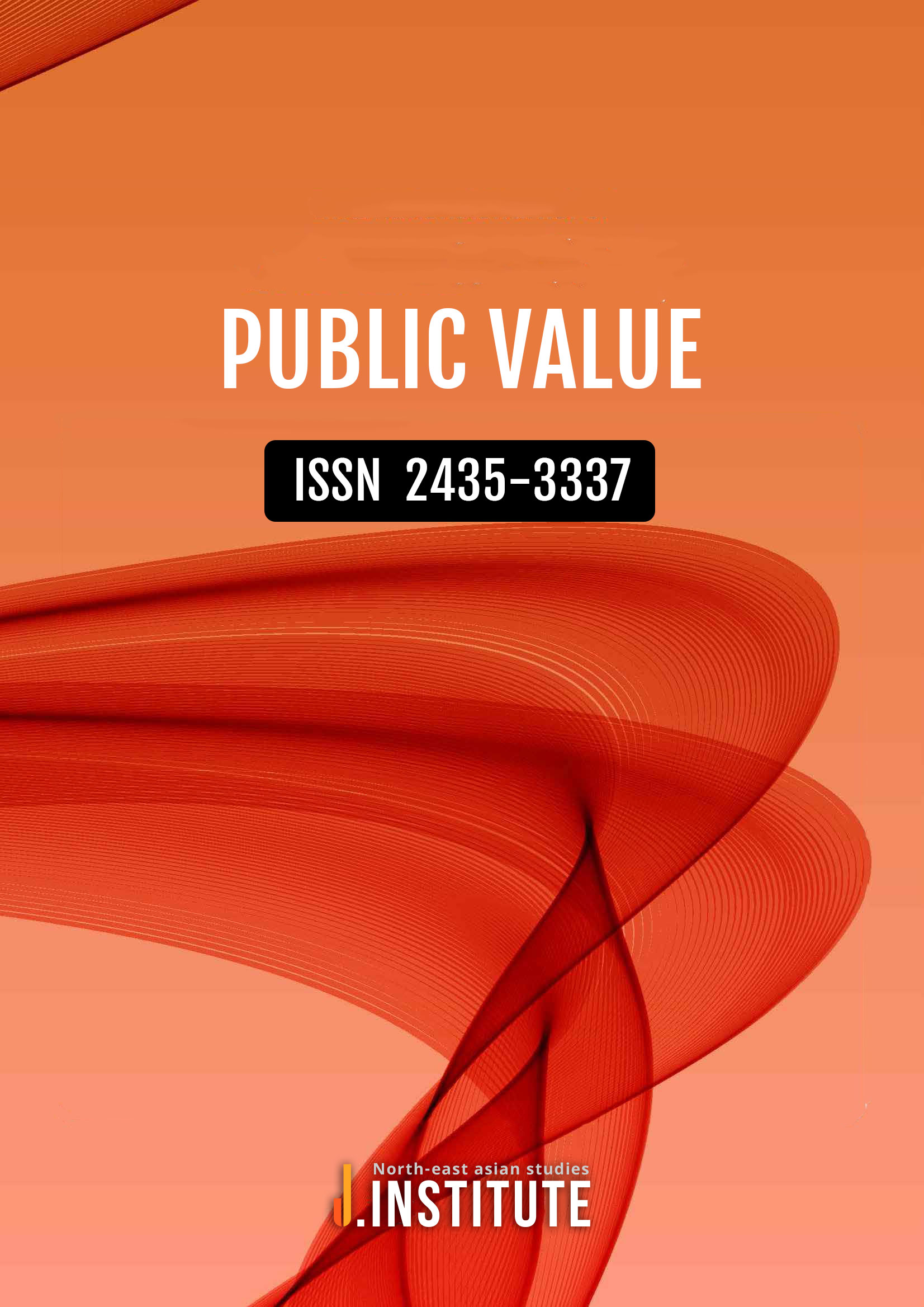- All
- Vol.1 (No.1) 2016
- Vol.1 (No.2) 2016
- Vol.2 (No.1) 2017
- Vol.2 (No.2) 2017
- Vol.3 (No.1) 2018
- Vol.3 (No.2) 2018
- Vol.4 (No.1) 2019
- Vol.4 (No.2) 2019
- Vol.5 (No.1) 2020
- Vol.5 (No.2) 2020
- Vol.6 (No.1) 2021
- Vol.6 (No.2) 2021
- Vol.6 (No.3) 2021
- Vol.6 (No.4) 2021
- Vol.7 (No.1) 2022
- Vol.7 (No.2) 2022
- Vol.8 (No.0) 2023
-
Teenage SNS cyber verbal abuse affect not only mental but also physical features of daily lives, bringing experiences of rage, demoralization and senses of outrage and humiliation. Juvenile SNS cyber verbal abuse may induce mental․physical in daily lives, as well as in school lives, critically harming the personality of a victim. The thesis aims at contemplating causes and countermeasures of cyber verbal abuse in juvenile SNS language uses in such a mobility society. Thus, observing the juvenile SNS usage state, the notion and types of cyber verbal abuse is proposed. Further, based on the context, causes and countermeasures of the juvenile SNS cyber verbal abuse are considered. The thesis suggests the causes of juvenile SNS cyber verbal abuse in terms of SNS media feature, internal characteristic of the juvenile and educational aspect. In addition, a campaign to eliminate school verbal abuse by the police, mentoring curriculum associated with each social institution and character education are revised in a societal manner, and langage education to pre-vent juvenile SNS verbal abuse in an educational manner as countermeasures against the juvenile SNS cyber verbal abuse. Guiding an appropriate direction for juvenile SNS language use in the mobility society, the thesis would con-tribute to discover a meaning in educational and sociocultural aspects. Moreover, the thesis would contribute to counteracting against juvenile SNS verbal abuse and to an adequate guidance of juvenile language uses.Keyword:Mobile, SNS, Cyber Verbal Abuse, Law Enforcement, Crime Prevention
-
Recently, a growing number of cases of school violence at school sites have become contentious and become legal problems, and the phenomenon is deepening beyond what teachers can solve. In line with these social changes, the Act on the prevention of and countermeasures against violence in schools was enacted in 2004. However, a number of complementary points are being discussed regarding the formation and operation of an autonomous committee for countermeasures against school violence under the current law. As the autonomous committee, which plays the most direct role as a response to school violence, needs to operate efficiently, the study explored the development direction through the analysis of current statutes and prior studies. The preceding studies presented various conclusions, but in common they suggested a lack of expertise in the formation of autonomous committees. It also said it lacked counseling and other support for the victims. Based on these problems, the study presented the following improvement directions. The first is the strengthening of the professionalism of the autonomous committee. The results of the preceding studies show that non-professional parent representatives include a majority, weakening their professionalism. Therefore, the need to expand the participation of external members in order to secure expertise is recognized. The second is the expansion of exclusion and recusal and the broad-basedization of the autonomous committee. It will be necessary to expand the system of exclusion and recusal in conjunction with the strengthening of professionalism. In order to eventually resolve this issue, the broad-basedization of the autonomous committee should also be considered. The third, parents' education closest to students should be required so that education can be conducted within the home. However, since such parents' education cannot be enforced under the current law, there is a need to establish a rule to supplement it. Finally, it is necessary to bring the victims' support to reality. In order to make the support of the victims a reality, it may be possible to activate the counseling function, including professional social workers, in the form of autonomous committees. Another is the use of the expertise of the Korea Crime Victim support Center. This improvement will serve as a positive aspect of the autonomous committee's activities to reduce school violence.Keyword:Criminal, School Violence, Autonomous Committee, Crime Prevention, Strengthening of the Professionalism
-
Smart Home, also known as Home IoT, refers to the product, service and solution remotely monitoring, controlling and operating domestic devices through the connection to the wireless network with mobile phones and computers. Smart Home has been developed into diverse versions, however its security still owns vulnerability in its device, network and privacy. Considering Smart Home security employs Public network, thus it is relatively more vulnerable than the ones, such as Smart Factory with Private network. Smart Home devised for convenience and safety of lifestyles may result in a disaster in private lives, if its security vulnerability is not resolved. The thesis examines past security threat cases in Smart Home environment, analyzes them in three different aspects – device, network and privacy – then would propose a counter-measure against the threats.Keyword:IoT, Smart Home, Hacking, CCTV, Security

